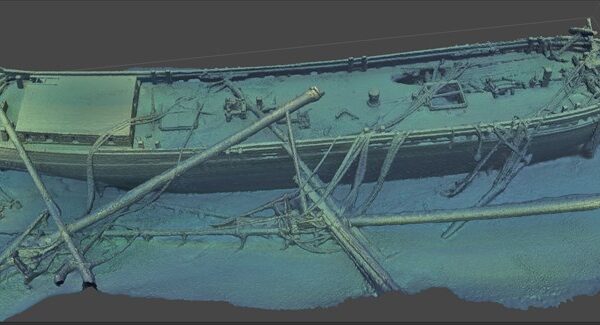
By Lester Graham, Michigan Radio
The Great Lakes News Collaborative includes Bridge Michigan; Circle of Blue; Great Lakes Now at Detroit Public Television; and Michigan Radio, Michigan’s NPR News Leader; who work together to bring audiences news and information about the impact of climate change, pollution, and aging infrastructure on the Great Lakes and drinking water. This independent journalism is supported by the Charles Stewart Mott Foundation. Find all the work HERE.
More Great Lakes residents in the U.S. and Canada think the Great Lakes are in bad shape than those who think they’re in good shape.
The poll by the Great Lakes Water Quality Board asked 4,500 people to rate the current status of the environmental health of their favorite Great Lake.
33% said their lake was in poor or very poor condition. Lakes Michigan, Erie, and Ontario were deemed in much poorer condition than Huron and Superior. 29% said the lakes were good or very good, and again Lakes Huron and Superior were seen as much better. 18% were neutral on the question and 19% said they didn’t know.
On whether it is safe to swim in a Great Lake, 30% said not safe and 40% said safe.
On whether it is safe to drink Great Lakes water, 36% said no and 29% said it was safe.
On whether they felt it was safe to eat Great Lakes fish, 38% said no and 29% said it was safe.
When asked how important it was that the health and water quality of the Great Lakes be protected, 90% said it was important. That’s a feeling that’s growing in intensity according to the results of two previous surveys in 2018 (88%) and 2015 (85%).
The poll found a growing number of people — 35% — feel the federal governments should be responsible for the health of the Great Lakes. 29% feel all of us share the responsibility.
When questioned about the importance of the role of individuals or households in protecting the lakes, 84% said it was important. That’s up from 78% in 2015.
When asked what they would do to protect the lakes, 86% said they’d be careful about what they pour down the drain. 78% said they’d conserve water. 76% said they’d reduce their use of disposable plastics.
They were much less likely to sign a petition (45%), join a local watershed group, volunteer or give money (26%), or attend a public meeting organized by government or other group (20%)
When asked about the negative impacts hurting the lakes, people named algal blooms as a top concern. That was followed by invasive species, sewer runoff, flooding, and climate change.
The report is being submitted to the International Joint Commission, made up of appointees from the U.S. and Canada. It was created by treaty to help resolve disputes and manage projects in the Great Lakes.
Catch more news on Great Lakes Now:
For the first time, “rock snot” nuisance algal blooms found in Lower Peninsula trout stream
Great Lakes Moment: Small habitat patches can have big ecological impact
Featured image: Lake Michigan waves crash against a shoreline in the Upper Peninsula of Michigan. (Photo Credit: Lester Graham)




